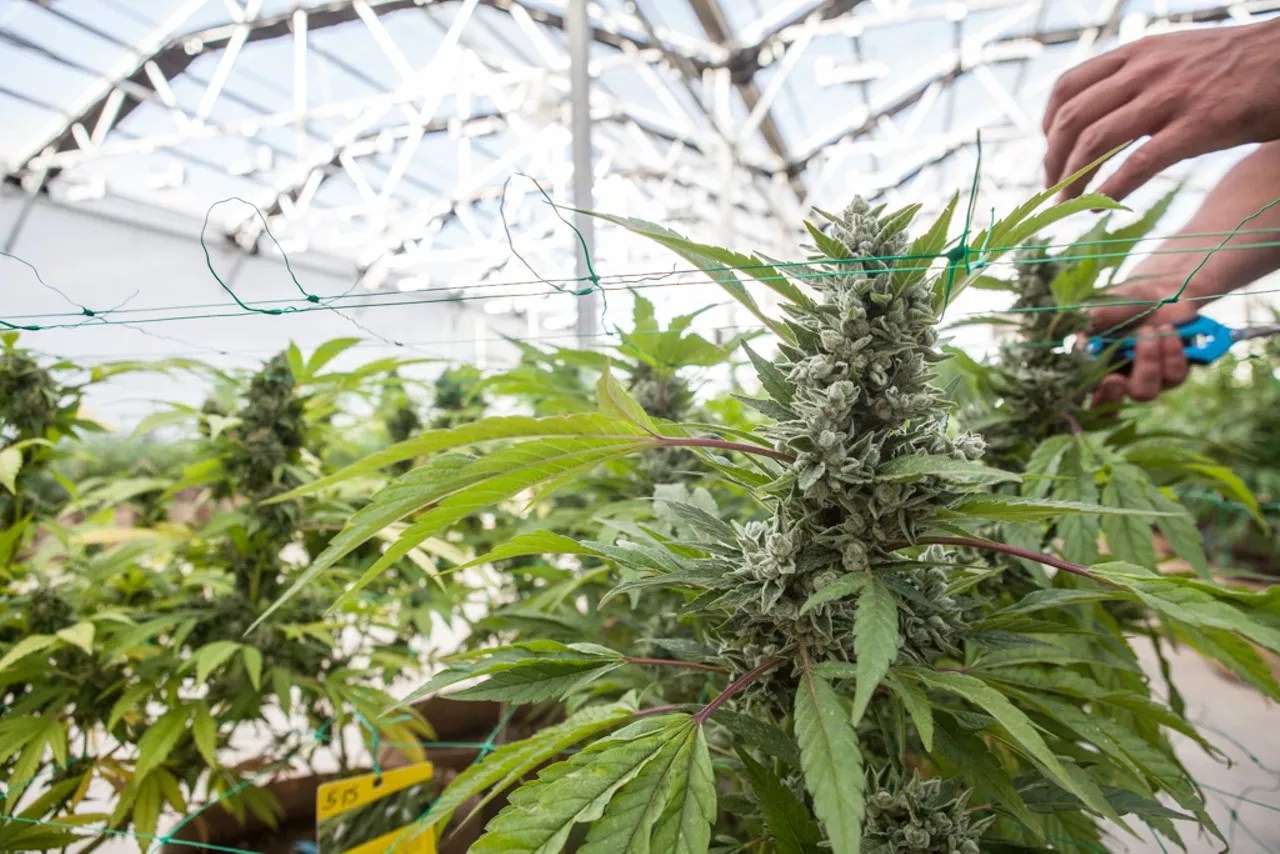
Jacqueline Collins

Audio By Carbonatix
Despite medical marijuana being legal in 36 states, researching the plant’s clinical effects and potential benefits can be difficult because of federal prohibition, but that’s exactly what the Colorado State University-Pueblo’s Institute of Cannabis Research is trying to do.
Cannabis is a Schedule I drug under federal law, so researchers who want to handle plant material face additional hurdles to getting research approved. As a result, research studying direct marijuana use is sparse, explains Institute of Cannabis Research director Chad Kinney.
“If somebody wants to work with high-THC materials, they currently have to get a Schedule I license just to handle that material – [and] that doesn’t mean they can do everything and anything they want, research-wise,” Kinney explains.
Studies that include potential therapeutic applications on humans require approval from the Food and Drug Administration and an institutional review board, says Kinney, while the Schedule I designation “separates marijuana from other therapeutics that are considered.”
On top of FDA and IRB approval, researchers handling marijuana must also receive a Schedule I license issued by the Drug Enforcement Administration. After making it through that obstacle, researchers must then get their plant material through the National Institute of Drug Abuse‘s Drug Supply Program, which sources its marijuana exclusively from the University of Mississippi. (A 2017 study found that the cannabis grown at Ole Miss looks nothing like weed in legal dispensaries, with the Mississippi product containing roughly one-third of the THC found in weed from Colorado, California and Washington.)
But there are ways to study marijuana without directly handling the plant, Kinney points out. “At the ICR, all research supported has all been federally compliant. Some of that research does involve high-THC topics without necessarily handling the plant material,” he says.
This happens with observational research, where researchers make observations of individuals who have consumed marijuana without touching or supplying any of the product. The ICR is also allowed to handle industrial hemp, which has been federally legal since 2018, and is essentially the same plant as marijuana, but made up of 0.3 percent THC or less. According to Kinney, studying hemp “is, in many ways, a good surrogate for marijuana outside of THC.”
Among other research efforts, the ICR is currently conducting studies about cannabis genomes, hemp plant structure, the plant’s effect on epileptic seizures, and how hemp seeds and the human body’s endocannabinoid system impacts certain forms of cancer. But Kinney sees potential for more discovery if his team could have more access to the types of marijuana products being consumed by millions of users across the country.
“I think that’s really where research is needed,” he argues. “To tackle where cannabis or a derivative of cannabis may be useful for a particular condition, and to direct research toward that. … That’s the need that exists.”
A medical marijuana research bill – the Medical Marijuana Research Act – passed the United States House of Representatives last week. The bill would remove some barriers for studying medical marijuana by increasing the number of federally approved cultivators for research purposes and loosening the application process for scientists to handle marijuana; the proposed changes would be overseen by the DEA.
Although it received support from both sides of the aisle in the House, the bill’s chances in the Senate before 2020 ends are slim, as Senate Majority Leader Mitch McConnell has declined numerous cannabis reform bills in the recent past. However, the Republican party’s Senate majority could be overturned by 2021 run-off elections in Georgia if both Senate seats are won by Democratic candidates.
Regardless of the Medical Marijuana Research Act’s success in Congress, the need and interest for cannabis research continues, Kinney explains. Some states with legal marijuana, like Colorado, are taking it into their own hands, issuing state marijuana research licenses – but even state-approved studies don’t carry the same weight as something with the seal of approval from the FDA, DEA or National Institutes of Health.
“What we are seeing is more individuals engaging in cannabis-related research on all fronts, not just medical. There is clear interest in conducting this research that I believe is due to researchers seeing some potential benefits and applications,” Kinney concludes. “So any type of act that can allow that research to occur in a responsible way is a positive thing.”